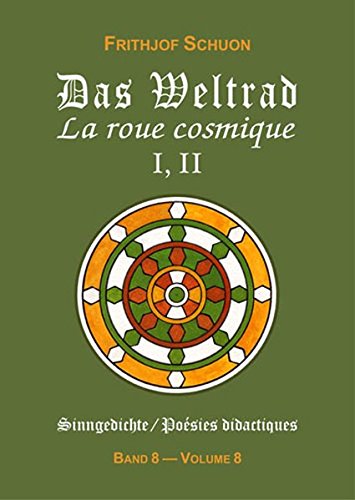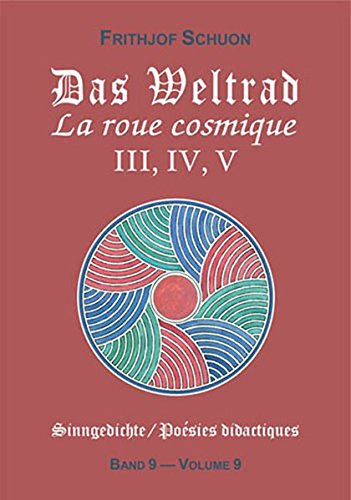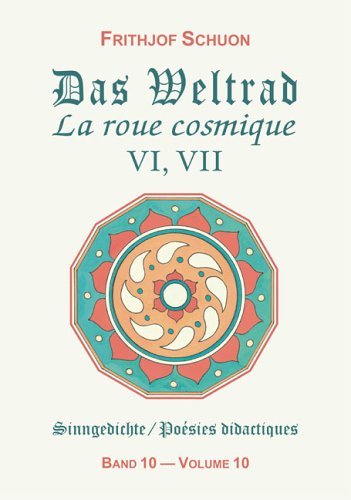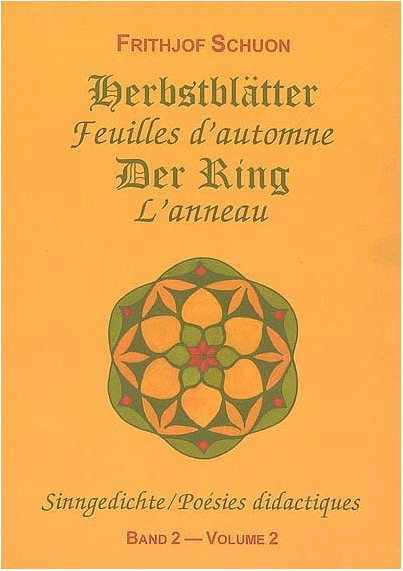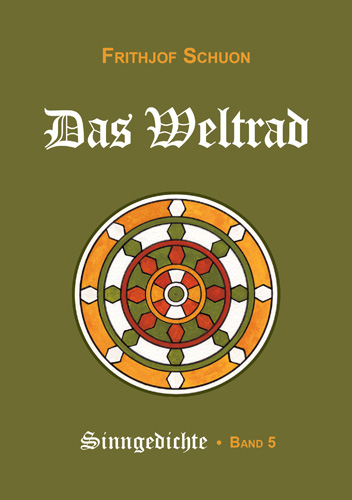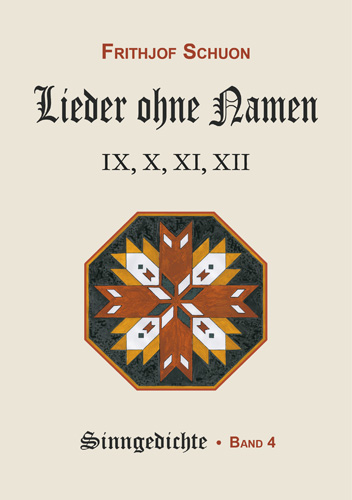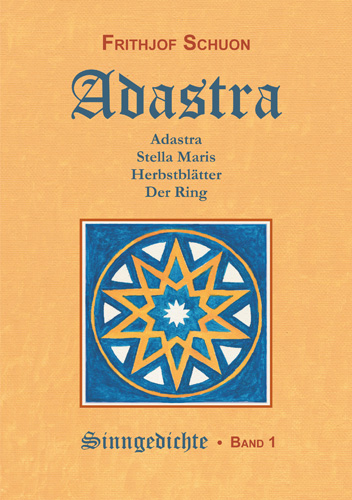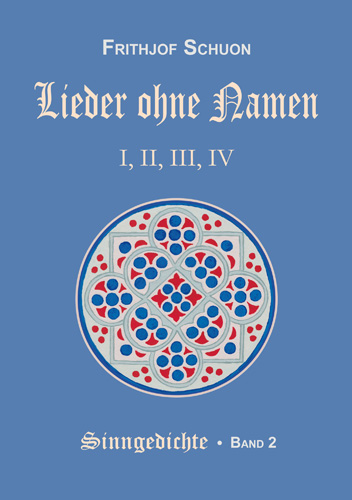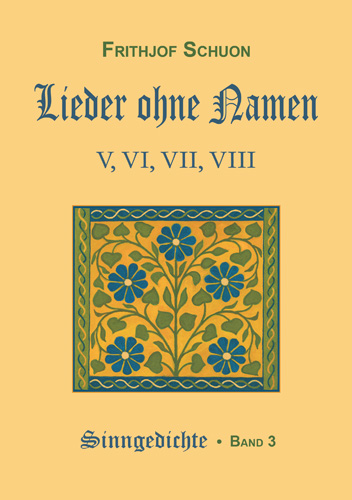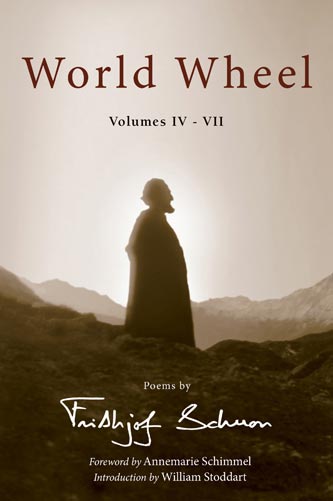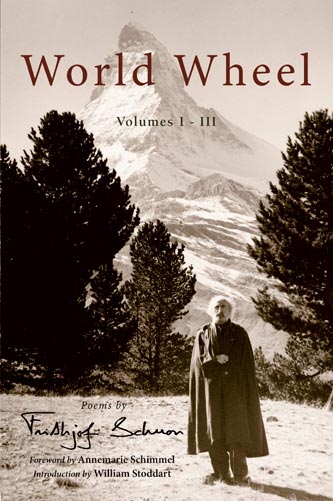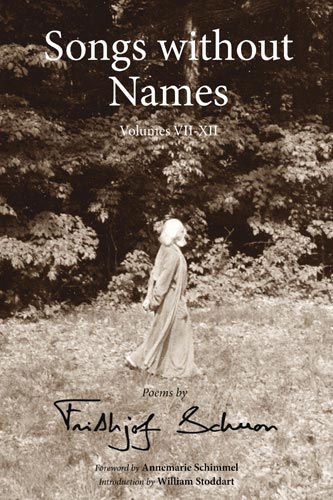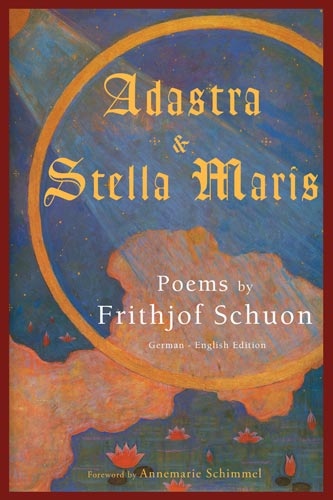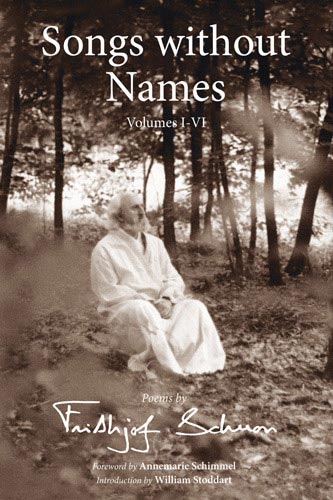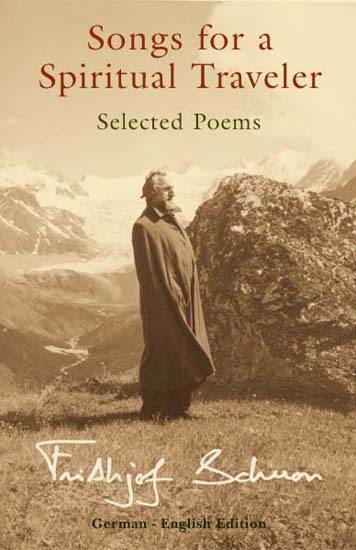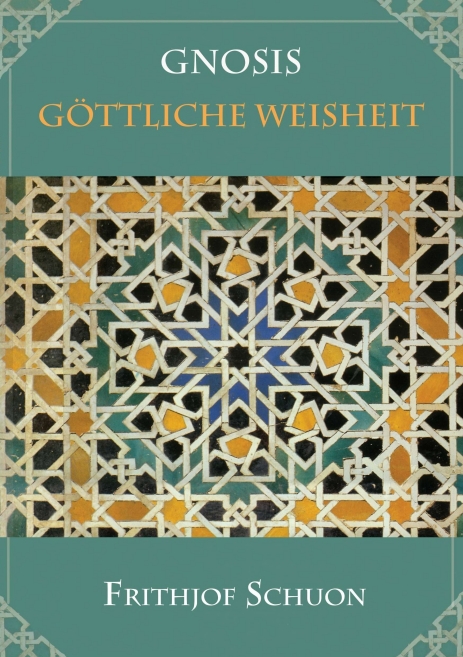
Frithjof Schuon Archive

Collections in Print
| Image | Title | Summary | Book Author | Book Subjects | Download | Price | hf:tax:book_subject | hf:tax:language |
|---|---|---|---|---|---|---|---|---|
| Das Weltrad 1, 2 | The German sense poems of Frithjof Schuon form a metaphysical and spiritual whole that unites the essential teachings of this master in a form that is both accessible and immediate. | Frithjof Schuon | Inspirational, Poetry | 35.84 | inspirational poetry | german | ||
| Das Weltrad 3, 4, 5 | The German sense poems of Frithjof Schuon form a metaphysical and spiritual whole that unites the essential teachings of this master in a form as accessible as it is immediate. | Frithjof Schuon | Inspirational, Poetry | 20.00 | inspirational poetry | german | ||
| Das Weltrad 6, 7 | As such, in their simplicity and directness, these poems may seem like a final mercy, a bit like a last lifeline thrown to us; mercy of a sage whose life and work can only be understood in the sign of giving, of conveying a core of certainty that is the key to happiness in this world and the next. | Frithjof Schuon | Inspirational, Poetry | 20.00 | inspirational poetry | german | ||
| Herbstblätter & Der Ring | The German sense poems of Frithjof Schuon form a metaphysical and spiritual whole that unites the essential teachings of this master in a form as accessible as it is immediate. | Frithjof Schuon | Inspirational, Poetry | 20.00 | inspirational poetry | french-2 german | ||
| Das Weltrad | The German sense poems of Frithjof Schuon form a metaphysical and spiritual whole that unites the essential teachings of this master in a form that is both accessible and immediate. | Frithjof Schuon | Inspirational, Poetry | 20.00 | inspirational poetry | german | ||
| Lieder ohne Namen IX-XII | The German sense poems of Frithjof Schuon form a metaphysical and spiritual whole that unites the essential teachings of this master in a form that is both accessible and immediate. | Frithjof Schuon | Inspirational, Poetry | 20.00 | inspirational poetry | german | ||
| Adastra | Frithjof Schuon’s German poems of meaning form a metaphysical and spiritual whole which unites the essential teachings of this Master in a form which is as accessible as it is immediate. | Frithjof Schuon | Inspirational, Poetry | 20.00 | inspirational poetry | german | ||
| Lieder ohne Namen I-IV | Frithjof Schuon’s German poems of meaning form a metaphysical and spiritual whole which unites the essential teachings of this Master in a form which is as accessible as it is immediate. | Frithjof Schuon | Inspirational, Poetry | 20.00 | inspirational poetry | german | ||
| Lieder ohne Namen V-VIII | Frithjof Schuon’s German poems of meaning form a metaphysical and spiritual whole which unites the essential teachings of this Master in a form which is as accessible as it is immediate. | Frithjof Schuon | Inspirational, Poetry | 20.00 | inspirational poetry | german | ||
| World Wheel: Poems by Frithjof Schuon Volumes IV-VII | A four-volume collection of spiritual poetry by Frithjof Schuon who wrote approximately 3,500 poems in his mother tongue German. | Frithhof Schuon | Inspirational, Metaphysics, Poetry | 22.00 | inspirational metaphysics poetry | english | ||
| World Wheel: Poems by Frithjof Schuon Volumes I-III | During the last three years of his life Frithjof Schuon wrote approximately 3,500 poems in his mother tongue German. | Frithjof Schuon | Inspirational, Metaphysics, Poetry | 22.00 | inspirational metaphysics poetry | english | ||
| Songs without Names: Poems by Frithjof Schuon Volumes VII-XII | During the last three years of his life Frithjof Schuon wrote approximately 3,500 poems in his mother tongue German. | Frithjof Schuon | Inspirational, Metaphysics, Poetry | 22.00 | inspirational metaphysics poetry | english | ||
| Adastra and Stella Maris: Poems by Frithjof Schuon | Adastra and Stella Maris: Poems by Frithjof Schuon represent the heart of Schuon’s German poems. These two books, combined in one volume, express, in the words of Annemarie Schimmel, “a mystery that lies beyond the normal human expression… | Frithjof Schuon | Inspirational, Metaphysics, Poetry | 19.95 | inspirational metaphysics poetry | english | ||
| Songs without Names: Poems by Frithjof Schuon Vol. I-VI | During the last three years of his life Frithjof Schuon wrote approximately 3,500 poems in his mother tongue German. | Frithjof Schuon | Inspirational, Metaphysics, Poetry | 22.00 | inspirational metaphysics poetry | english | ||
| Songs for a Spiritual Traveler: Selected Poems | The poetry of Frithjof Schuon has been called metaphysical music. English/German bilingual edition. | Frithjof Schuon | Inspirational, Metaphysics, Poetry | 13.95 | inspirational metaphysics poetry | english german |
Featured Books
Gnosis – Göttliche Weisheit
The first part of the book deals with questions related to the diversity of religious traditions; the second with metaphysical and anthropological topics, including the insightful essay “Seeing God Everywhere”; the third is devoted to Christianity from the point of view of gnosis.
Featured Poems
Adastra and Stella Maris: Poems by Frithjof Schuon-Home-coming
Apokatastasis: return of all values,
Adastra and Stella Maris: Poems by Frithjof Schuon-His Will
Mâ shâ’ Allâh: God doeth what He will.
Adastra and Stella Maris: Poems by Frithjof Schuon-The Ray
A dream-web in a thousand webs of dreams,
Featured Articles
The Elect and the Predestination of Knowledge: ‘Esoterism’ and ‘Exclusivism’: A Schuonian Perspective
The author of the essay states his purpose thus: “This paper considers the idea of the elite, or elect, with respect to the problems of Predestination and the notion of the exclusivity of esotericism. It is our opinion that the questions raised here can only be resolved in light of the metaphysical knowledge that is the proper subject of esotericism, where, as said, this is understood as the sophia perennis. Frithjof Schuon stands as the pre-eminent voice of the sophia perennis for our day and age and it is thus that this paper is largely a reiteration of what he has said on these points.”
The Mystery of the Two Natures
Combining a Socratic and a personal approach, Cutsinger looks to the writings and insights of Frithjof Schuon to examine “how in good conscience can a traditional Christian accept the idea that there is a ‘transcendental unity of religions’?” The author finds answers in a deeper understanding of Christ’s two natures: human and Divine.
